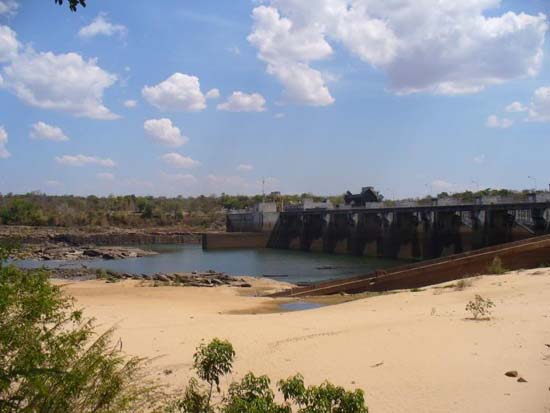Lessons from Thailand for dams on the Mekong River
The World Wildlife Fund (WWF) today warned investors to invest in a dam project on the Mekong River to study lessons from the Mun river dam in Thailand, an economic, environmental and social failure. .

The Thai government is researching to permanently open Pak Mun dams, on Mun river.
Image of IE
The Thai government is studying a way to permanently open doors on the Mun River dam - a tributary of the Mekong River - in the hope of restoring river ecosystems and people's lives, WWF announced.
The Mun River originates from Khao Yai National Park, Thailand's largest and oldest nature reserve. It joins the Mekong River in Ubon Ratthatchani province in the northeast. The construction of the Mun River Dam was built in the 1990s. Construction costs exceed the budget and reduce the amount of fisheries here, causing the community to migrate and not bring profits to investors.
These risks can also be repeated with the Xayaburi Dam, a work that people want to build on the mainstream of the Mekong River in northern Laos. According to WWF, the lives of tens of millions of residents in this region are now at stake.
Dr. Suphasuk Pradubsuk, WWF Thailand's policy coordinator, said: " The Mekong River is a very complex and special ecosystem. It has the world's largest freshwater fisheries resource and is second. just behind the Amazon River in the number of fish species The lesson of the Mun River dam in Thailand is still there, hasty research on environmental and social impacts can lead to unfavorable situations for all fishermen. people and owners of the dam ".
At a cost of US $ 233 million, the Mun River dam has doubled its initial investment. Meanwhile, electricity output is only 1/3 of the estimated level in the dry season.
" Some limited current research cannot find interactions between different components of the ecosystem. Therefore, we cannot accurately predict the effects of dams on the mainstream of the lower Mekong. "Risks for people, the environment and investors are huge, " Ms. Suphasuk said.
The consultation process for the Xayaburi dam construction project in Laos is about to end under the guidance of the Mekong River Commission. The purpose of the consultation process is to ensure rigorous, clear and scientific assessments of the impact of the dam. However, a report on the feasibility study of the recently released Xayaburi Dam, which does not mention lessons from the Mun River Dam, WWF emphasized.
" This study only confirms that the impact of the Xayaburi Dam will be low without providing evidence to support this optimistic conclusion, " said Phasiri Winichagoon, WWF Thailand director.
Winichagoon said that those who supported the Mun River dam project also ignored the impacts on the Mun River. However, there are economic and environmental disasters hidden in what have been overlooked or considered disinterested.
WWF supports the postponement of approval of mainstream dams downstream of the Mekong River for 10 years to ensure stakeholders fully understand the impact of dam construction and operation.
- Small dams threaten fish species on the Mekong River
- Smashing the Mekong River
- It is proposed to postpone the construction of a dam on the Mekong River
- Thailand studies a flow of a tributary of the Mekong
- 'Should postpone dam construction on the Mekong for 10 years'
- Dams threaten the Mekong's ecology
- New discovery of the process of forming the Mekong River
- Dams on the Mekong River threaten large fish
- China claims not to drain the Mekong
- Reduce the environmental impact of the Mekong River
- Thanks to China rescuing the Mekong
- More than 87.3 million USD to overcome the disaster of Mekong River
 Is the magnetic North Pole shift dangerous to humanity?
Is the magnetic North Pole shift dangerous to humanity? Washington legalizes the recycling of human bodies into fertilizer
Washington legalizes the recycling of human bodies into fertilizer Lightning stone - the mysterious guest
Lightning stone - the mysterious guest Stunned by the mysterious sunset, strange appearance
Stunned by the mysterious sunset, strange appearance